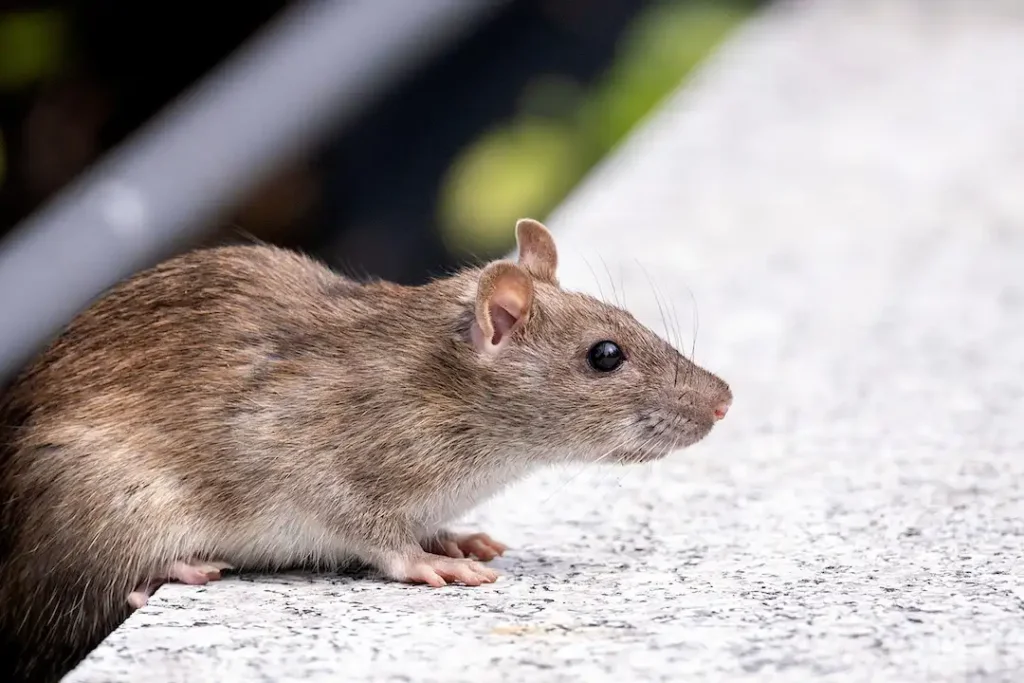What is a Roof Rat? Terrifying Yet Fascinating Facts You Should Know!
Share
The 'roof rat' is among the most infamous pests plaguing homes today. Knowing what a roof rat is and recognizing its traits is essential for effectively managing its presence. These rodents can inflict considerable damage and pose serious health threats, making it vital to understand their habits and habitats.
Often confused with other rat species, roof rats are nimble creatures that flourish in urban settings. They prefer to reside in elevated areas, often choosing your roof as their dwelling. Familiarity with their behaviors and strategies to deter them can give you an advantage against these unwelcome intruders.

Characteristics of Roof Rats
Roof rats, scientifically known as Rattus rattus, are slender rodents that find joy in wooden structures and trees. Their fur is typically a mix of dark brown to black, complemented by a lighter underside. A standout feature is their long tail, often exceeding their body length. On average, adult roof rats grow to about 7 to 10 inches long, not including their tails.
Their large ears and pointed snouts enable them to excel in their nightly escapades. Their exceptional sense of smell and climbing skills allow them to navigate through various terrains, be it tree canopies or your attic. Recognizing these traits is crucial for identifying a potential roof rat problem in your home.

Behavior and Habits of Roof Rats
Being nocturnal, roof rats are most active during nighttime hours. Typically, they nest in elevated areas like attics and roof spaces, which perfectly suits their nature. Roof rats are social and tend to form large colonies, communicating through a variety of vocal sounds and scent markings.
As omnivores, these rodents will consume nearly any food, with a preference for fruits, nuts, and vegetables. Their propensity to gnaw on various materials can result in structural damage and pose fire hazards within homes.
Signs of Roof Rat Infestation
Spotting a roof rat infestation sooner rather than later is vital for effective management. Here are key signs to watch for:
- Chew Marks: Roof rats are notorious for gnawing on wires, wood, and plastic; finding chew marks can indicate their presence.
- Droppings: Rat droppings are small black pellets, usually about 1/4 inch in length.
- Nests: Watch for nests constructed from shredded paper, leaves, or fabric found in high areas.
- Noises: Scratching sounds within walls or ceilings at night may point to active roof rats.

Health Risks Linked to Roof Rats
Roof rats are more than just a nuisance; they pose serious health hazards. They can carry various diseases, which may be transmitted to humans through bites or contact with their urine and feces. Some diseases associated with roof rats include:
- Leptospirosis: A bacterial infection that can lead to severe flu-like symptoms.
- Salmonella: Typically spread through contaminated food or surfaces.
- Rat-Bite Fever: Can occur after being bitten by a rat or handling a deceased one.
Ensuring your environment is free from roof rats is crucial for maintaining a healthy living space.

How to Prevent Roof Rats
Implementing proactive measures against roof rats can save you from complications down the road. Here are some effective prevention strategies:
- Seal Entry Points: Thoroughly inspect your home and close any gaps or holes in walls, attics, or roofs.
- Proper Waste Management: Keep trash in closed containers and promptly discard food scraps to avoid attracting unwanted guests.
- Trim Trees and Shrubs: Regularly maintain landscaping to make it harder for roof rats to access your roof.
Roof Rats vs. Other Rodents
Many individuals confuse roof rats with Norway rats or other rodent types. Identifying these distinctions is essential for applying suitable control measures. For instance, Norway rats tend to favor lower areas and have stockier bodies while often displaying more aggression. Understanding these variations can significantly aid pest control efforts.
Getting Rid of Roof Rats
Once you've confirmed the presence of roof rats, take immediate action. Possible solutions include:
- Trapping: Snap traps or live traps can effectively eliminate roof rats.
- Poison Baits: Although effective, poison baits must be used cautiously, especially in homes with children or pets.
- Professional Pest Control: Hiring experts can be a highly effective method for both removal and prevention.
For additional details on managing roof rat issues and understanding associated dangers, visit high-efficiency traps.
Alternatively, for further understanding of roof rats, check out this external resource.
Conclusion
Understanding what a roof rat is equips homeowners with the knowledge to identify and tackle these invasive rodents. By familiarizing yourself with their characteristics, habits, and associated health risks, you can better safeguard your home against infestations. Taking preventive actions and seeking assistance from pest control professionals are key to ensuring a healthy and safe living space.
FAQs about Roof Rats
- What do roof rats eat? Roof rats are omnivores and typically prefer fruits, nuts, and vegetables but will consume a wide range of food when necessary.
- How can I tell if I have roof rats? Look for signs such as droppings, chew marks, nests, and nighttime noises.
- Are roof rats dangerous? Yes, they can transmit diseases through bites and contact with droppings and urine.
As an Amazon Associate, I earn from qualifying purchases.
